17/07/2019
- Without helping SMEs benefit from the advantages of digitalization and new services, the industry will not reach the maturity of technologies such as 5G.
Madrid, July 17, 2019.
The second day of the DigitalES Summit 2019 held a panel discussion on the technological challenges for tomorrow’s world with the participation of Juan Pedro Moreno, President Spain of Accenture, Mariangela Marseglia, Country Manager Spain and Italy of Amazon, César Cid, CEO of Arca, Tony Jin Yong, CEO of Huawei, Ignacio Bueno, General Manager of the Vigo Center of Groupe PSA and Antonio Coimbra, President and CEO of Vodafone.
Juan Pedro Moreno opened the debate by pointing out that it is no longer technology that is changing society, but society that is changing technology. “The competitive map of countries is changing because people no longer think only in terms of quality and price but also in terms of experience. The head of Accenture referred to the hyper-personalization of services.
He also referred to a new wave of competitiveness based on the degree of digitalization of the companies themselves: the transition to Industry 4.0, intelligent companies, the connected worker… are indicators of the digitalization of companies that will make them more efficient.
Moreno announced the signing of an agreement with Vodafone to pilot the use cases that Vodafone will deploy with its 5G.
Huawei CEO Tony Jin Yong noted that “our will for the future is that in the next two to three decades society will enter an era of smart society: everything accessible, connected and intelligent”. “A world with more sensors more connected with information that becomes digital signals that through sensory channels can offer interactions to be immersed in the experience. ICT will have an essential role: cloud and connectivity essential for cohesion between physical world and cloud, all integrated by artificial intelligence.”
Ignacio Bueno, from PSA Automobiles, provided the vision of the automobile manufacturer that must adapt its manufacturing processes and products to the new demand.
For his part, Antonio Coimbra, president of Vodafone, claimed the role of operators as “drivers of digital transformation”. According to the operator’s top representative in Spain, “without next-generation networks it is not possible to drive digital transformation. It is the main role of operators to provide 5g fiber or the internet of things: iOT networks also fiber to boost applications deployed in Spain”.
But even more important is the second role of telcos: “we also have to position ourselves as a strategic partner of companies. Spain is a country of SMEs, and they have a lot of difficulty in knowing what to do, we must work with them in their transformation”.
According to Vodafone’s latest report on the business sector, only 43% of SMEs in Spain have a digitalization plan and only half have the budget to implement it.
The head of Amazon Spain, Mariangela Marseglia, also highlighted the role of SMEs in this digital revolution and their role in a global market where they compete with companies from all over the world. According to Marseglia, “more than 50% of what is sold on Amazon is through small companies, 8,000 Spanish SMEs already sell on our platform and these companies already export 400 million euros, a growth of 50% over the previous year.”
ARCA CEO Cesar Cid, a telecommunications technology enabler, highlighted the challenges of the labor market and employment transformation. “Sixty percent of employment is going to be reduced by 20 percent due to automation, however, other professions that are already in demand will also be created.” That is why, for Cid, education is fundamental “encouraging STEM careers and continuous and agile training models.”
In this regard, the head of AMAZON pointed out that on the platform “we started introducing robots in 2012 in warehouses, but we created another 300,000 thousand jobs of other types.” For Marseglia “it is important to invest in the development of new skills for workers.
Antonio Coimbra referred to the recently launched commercial deployment of 5G. For Coimbra, “the prospects are even better than the government suggests, since 5G is already real in 15 cities in Spain in collaboration with Huawei and Ericsson”.
The president of Vodafone announced the start of pilot tests in Andalusia with more than 20 million euros to test the potential of 5G.
In this sense, the head of Huawei Jin Yong pointed out that “in Spain we have to promote openness to the market and encourage external alliances; the government is doing very well to encourage the different sectors to participate”.
Juan Antonio Moreno, of Accentur, concluded by saying that “technology and infrastructure are no guarantee of success”. For Moreno “we will not make a digital transformation of Spain if there are no judges, doctors, or professionals who accept that there are predictive tools and technological use that can change the way they work”.
Governing digitalization
Also speaking at the DigitalES Summit during the morning was Francisco Polo, Secretary of State for the Digital Agenda, who stressed the importance of “governing digitalization and putting people at the center” of this revolution. Polo referred to the “fears and questions” that the advance of digitalization generates in citizens, such as the risks derived from sharing data on the network, the growing automation of employment, etc.
In view of this, Polo assures that “digitalization must be the way to ensure a better future for all” and this poses important challenges in education, to train citizens in new digital skills; in employment and in the challenge of modernizing the economic model to improve competitiveness. In addition, the Secretary of State highlighted other key challenges, such as “protecting democracy and fundamental rights in a world, the digital world, that transcends borders”.
DigitalES SUMMIT 2019
The DigitalES Summit 2019 held its second day with three topics of scope for the digital future of Spain: the world of tomorrow as seen from technological solutions, mobility in the digital era, and the future of employment and education. The event was attended by the Minister of Industry Reyes Maroto and the Minister of Education Isabel Celaá.
In addition, the meeting closed with a conversation between Prime Ministers Jose Maria Aznar and Felipe Gonzalez, to discuss the role of state policies in promoting digitization and technology as an element of geopolitical leadership.
See more details in the event program.
@AsocDigitales
#DigitalES2019









